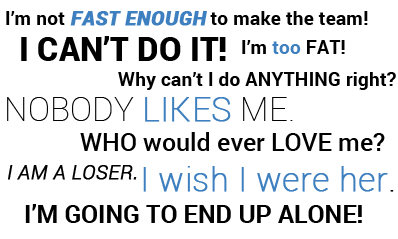power of words
A Simple Phrase That Leaders Need To Know
Bonjour!
I don’t speak French. When it was time to take a foreign language in high school, Spanish seemed a more practical choice where I lived in California. However, it makes things a bit difficult, each Summer when I head to beautiful French-speaking Switzerland. Every year, I spend a month conducting leadership workshops and trainings at international leadership camps. Rough gig, huh? Everyone in my sessions speak English – so I get to teach in my native tongue. It’s when I head out into the real world that things get a little tricky. Even simple tasks such as buying an apple at the market or ordering a desert from a counter are an ordeal when you are unable to communicate. Sadly, after three years of annual visits, I still get through the day with pointing, pantomime, and finally asking “Do you speak English?”
There is one word that anyone who spends even a little time in Switzerland will learn: “Bonjour!”
That’s “Good Day!” in English.
 This formal greeting isn’t held in reserve for when you enter a store or sit down at the café. You’ll hear it from everyone you happen to pass. Men, women, children, young, old… Everyone. And they don’t just say it. They emphasize it with a sing-song happy voice accompanied by a big smile that makes you feel like they really mean it. This was quite strange at first, especially coming from a country where you can live in a place for a decade and still not know their neighbor’s first name. But you get used to it. And taking a cue from the country that Forbes Magazine lists as the #2 Happiest Place To Live, pretty soon you find yourself smiling and presenting your own happy “Bonjour!” to everyone that might cross your path. It’s amazing!
This formal greeting isn’t held in reserve for when you enter a store or sit down at the café. You’ll hear it from everyone you happen to pass. Men, women, children, young, old… Everyone. And they don’t just say it. They emphasize it with a sing-song happy voice accompanied by a big smile that makes you feel like they really mean it. This was quite strange at first, especially coming from a country where you can live in a place for a decade and still not know their neighbor’s first name. But you get used to it. And taking a cue from the country that Forbes Magazine lists as the #2 Happiest Place To Live, pretty soon you find yourself smiling and presenting your own happy “Bonjour!” to everyone that might cross your path. It’s amazing!
FAST FORWARD
I’ve been back in the US for only a few days now. Yesterday my girls and I headed to the beach. It was my first real interaction with the general public since my return. While my daughters soaked in the sun, I took a stroll along the shore. It wasn’t long till I saw another walker enjoying the coast – they were heading right toward me.
She was about my age casually walking, looking down at the sand as she did. I got ready to dispense with my best, “Bon Jour!” when it occurred to me where I was – or where I wasn’t. I decided that my greeting would likely earn me a weird look. Even worse, she might stop me and start speaking to me in French assuming that I knew the language. As the woman came closer I felt nervous and told myself to look down or away and act as though she didn’t exist. That’s what you’re supposed to do, right?
At the last second, I put a smile on my face and spoke a cheery “Good Day!”
The words felt weird coming out of my mouth. It’s the literal translation for Bonjour but who the heck says Good Day? Not me. Well, unless I’m imitating Fez from That 70’s Show with his offended “I said Good Day!!”
The woman, however, looked up smiled and said “Good Day!” right back. It was wonderful to see her transformation from someone who, like myself, was trying her best to not to make eye contact with a stranger into someone wearing the look of happiness and relief that someone else had broken the ice.
For the rest of my walk, as other people passed, I tried other greetings… “Hello” “Good morning” “Hi” Eventually settling back to my original “Good Day!”
Your ‘Hello!’ Could Change Somebody’s life.
I remember reading an article called Jumpers published in The New Yorker. One of the lives featured in this piece is of a man who jumped off San Francisco’s Golden Gate Bridge. Lonely and suffering from depression, he decided to end his own life. When officials found the note that he’d written and left on his bureau just a few hours earlier, they read the words: ‘I’m going to walk to the bridge. If one person smiles at me on the way, I will not jump.’
Not one person smiled.
I’m not saying someone committing on not committing suicide rests in your ability to smile at everyone on the street. However, a study out of the University of Chicago reports that at any given time at least one in five people (or about 60 million Americans) suffers from loneliness. I’d venture to guess that also means that one in five of your co-workers or one in five of your peers at school suffer from loneliness too. And a simple “hello” or “good day!” or even just a smile might be all someone you come in contact with needs to make it through the day.
“If you go looking for a friend, you’re going to find they’re scarce. If you go out to be a friend, you’ll find them everywhere.”
– Zig Ziglar
PS – Two notes I want to make: 1) I have signed up for a beginning French Language Class. When I return to Switzerland in 2015… I’m going to be a little less helpless than usual. 2) I passed the same woman on the way back on my walk. She said hello and pointed out a few seals that I hadn’t seen that were swimming right off the shore where we were standing. : )
What are your thoughts on the power of a hello and a smile? Have you ever had a day when that’s all you really needed from anyone? We want to know! Please share your ideas with us in the comments section below.
Goal Setting Basics: 4 Words That Sabotage Goals
The Inner Critic is a concept that psychologists use to refer to that inner voice that attacks a person, saying that he or she is bad, wrong, stupid, worthless, and so on. And it loves to show up right when you’re trying to accomplish your most important goals. It tells you that you are going to fail. And oftentimes it succeeds – simply because you choose to believe those negative thoughts.
The voice of this Inner Critic is nothing more than a thought. And the average person has about 50 thoughts per minute! These ideas or opinions are produced by thinking or just suddenly occurring in our mind. They can be about anything… from a memory of our last vacation, a joke we heard on TV, a doubt about our life, or even a fierce dragon! Your Inner Critic LOVES to hold on to certain negative thoughts, and accepts them as true – even when there’s not one shred of proof to back it up – that’s when these thoughts transform into beliefs.
Remember: Just since we believe something, it doesn’t make it true. Heck, people used to believe the Earth was the center of the universe until scholars took a good look and proved them wrong.
When setting goals, a good place to silence the Inner Critic is with our words.
Ever tell a lie? Of course you have. Ever tell a lie so many times that one day you caught yourself thinking that the lie was the truth. That’s because the words we speak reinforce your beliefs.
When we say our negative thoughts out loud, we reinforce those beliefs which keep us from taking action and eventually lead us to failure.
However, when we transform those thoughts into positive statements, we force our Inner Critic to listen and change the things it tells us.
Here are 4 Negative Words we can avoid when speaking about our goals and the 4 Positive Words we should use to replace them:
#1 – “TRY”
TRY is one of the most useless words ever. It’s the word we use when we intend to fail.
What did our old pal YODA say about the word try? That’s right!
“DO or DO NOT – There is no try.”
#2 – “CAN’T”
CAN’T is such a final word. It instantly tells your Inner Critic that all possibility of success is gone.
Which is just so sad! Especially, since most of the time when someone says CAN’T – they usually mean WON’T.
If you wan’t to set forth on a positive track, substitute the word CAN’T with CAN!
#3 – “WHY”
Your Inner Critic is always looking for an excuse to butt-in and give an opinion.
It likes nothing better than to tell you you’re not good enough and seeks to talk you out of your goals.
When you say the word: “WHY” – you’re giving your Inner Critic a direct invitation to jump in and fill in the blanks for you.
When we feel desperate or helpless it often comes out as “WHY ME?”
When doubt enters your mind, replace WHY with HOW.
When you ask: “WHY CAN’T I FIND A JOB?” – Your Inner Critic comes up with all sorts of negative answers that psyche you out!
Instead ask: “HOW AM I GOING TO DO THINGS DIFFERENT TO FIND THE CAREER THAT’S WAITING FOR ME?”
And instead of asking: “WHY AM I DOING SO BAD IN SCHOOL?”
Assign your creativity to work on: “HOW AM I GOING TO ARRANGE MY SCHEDULE TO ALLOW ME TO STUDY MORE?”
See how it forces your Inner Critic to use its efforts more efficiently? You challenge it to come up with a solution to your goal rather than knock it down.
#4 – “DON’T”
Human beings tend to gravitate toward the direction in which we are focused. When we get wrapped up in thinking and talking about the things we don’t want to have happen in our lives, we take away our focus from the things we do want.
It’s the first quality any goal needs to succeed. I talk about it in a past post: How To Set Goals | Quality #1: Make Your Goals Positive!
Focus your goals on the positive with words like: I WILL or I WANT or I AM!
ONE LAST THOUGHT ON NEGATIVE SELF-TALK & CONQUERING THE INNER CRITIC:
There are so many ways that our Inner Critic can make us struggle with the person we were born to be. Check out this video created by ALWAYS.
They have launched a campaign to help young women eliminate negative words from their lives.
When I watched it, it made me re-think everything that comes out of my mouth. Let me know what you think.
Has your Inner Critic ever kept you from getting what you want? Do you have any tips on how to keep positive when self doubt starts to interfere with your goals. We want to know! Please share your ideas with us in the comments section below.
Public Speaking 101
Your purpose is to make your audience see what you saw, hear what you heard, feel what you felt. Relevant detail, couched in concrete, colorful language, is the best way to recreate the incident as it happened and to picture it for the audience – Dale Carnegie
If facing a large audience gives you shivers, and the thought of public speaking gives you pangs of nervousness, make sure to follow these basic guidelines before you prepare for your next public speech or presentation.
Make the introduction gripping, and the content clear and concise
The content of your speech is the backbone of your success. Remember that first impressions are the last ones too, and aim to capture the attention of your listeners with your first expression. Starting with an inspirational quote, or a relevant short story, may work well to grip an audience. Ryan McLean highlights the importance of a captivating beginning by saying, “Your introduction needs to establish with the audience why it is important to them and why they should be listening to the speech.”
That being said, the quality of the main body is equally essential to ensure a successful outcome. The success of your presentation will be judged not by the knowledge you send out, but by what the listeners grasp from your words. Be understandable and assertive on your viewpoints; make sure you speak slowly, clearly, and thoughtfully. Keep the content to the point, avoid beating about the bush, and keep in mind the difference between a lecture and a speech. When determining the length of your content, take a hint from Dorothy Sarnoff’s advice, “Make sure you have finished speaking before your audience has finished listening.”
Confidence, composure, and poise
Undoubtedly, the most feared words of public speaking. You may be trying your best to avoid eye contact or imagining there is no one in the room, but as dreaded as it is, eye contact and speaking with confidence is extremely vital for an exceptional public act. It is absolutely vital for a public speaker to know the difference between ‘public reading’ and ‘public speaking’. Your audience is not there to watch your head hanging down as you read from a piece of paper. Make sure to be well-dressed, keep your hands out of your pocket, and stand tall and erect without moving a lot.
Public speaking is only 10% what you deliver and 90% how you deliver. Make sure you have researched well on your facts and figures, and confidently convey it to your listeners to make them believe in your potential and credibility. Keep it engaging and smooth by focusing your gaze on the audience as you speak and redirecting it to different listeners through the act.
Stay calm under unexpected problems
Broken multimedia, faulty projectors and whistling speakers are a common sight at conferences and corporate meetings. It is completely normal to experience technology hitches, unforeseen accidents, unnecessary interruptions, or simply going blank during your speech, or presentation. Stay calm under pressure, crack a joke, avoid being over apologetic, and most importantly never bury your face in your hands! Express your need for a pause to recollect your thoughts and resume once you are ready. Your tactful demeanor and quick recovery from a setback may leave your audience even more impressed.








